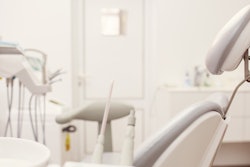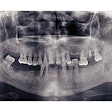Patients who undergo bariatric surgery may face a greater risk of developing caries compared to those who have medical treatment, including lifestyle changes and possible drug therapy, according to new research.
Also, those who undergo surgery may be at increased risk of developing a general decline in oral health, according to a press release dated October 24 from the University of Gothenburg in Sweden.
“Health professionals and dental professionals meet these patient groups in their everyday work,” Dr. Negin Taghat, PhD, a dentist for the Swedish Public Dental Service in Region Västra Götaland, wrote in the press release. “It is extremely important for staff to be aware that oral health can be affected by both obesity and obesity treatment so that preventive measures can be planned.”
In 2021, an estimated 262,893 bariatric procedures, including band, sleeve, and balloon procedures, were performed in the U.S. That number rose significantly in 10 years since it has been proven effective for weight loss. In 2011, an estimated 158,000 procedures were performed in the U.S., according to the American Society for Metabolic and Bariatric Surgery.
To study the oral health of individuals before and after treatment for severe obesity, researchers studied 118 patients with body mass indexes (BMI) of 40 or more, or those with BMIs of 35 or more in addition to having another systemic condition like diabetes.
Prior to intervention, higher BMI was linked to a higher caries risk, and there was a doubled risk of caries and less regular treatment in those with the highest BMI values, according to the researchers.
Two years after these patients underwent bariatric surgery or medical treatment, which included lifestyle advice, possible drug therapy, diet changes, and support and increased physical activity, a significant difference was seen between the two groups.
Patients who had surgery went from having an average of 15 caries lesions on tooth surfaces to 19.1. However, enamel lesions had decreased in those who had medical treatment, the researchers wrote.
As for deeper carious lesions in the dentine, patients had an average pretreatment initial value of 4.3 lesions. Two years after treatment, individuals in the surgery group had an average of 6.4 deeper lesions, while those in the medical treatment group had 4.9 lesions, according to the release.
When considering factors such as socioeconomic status and other medical conditions, the associations were statistically significant. Furthermore, those who had surgery experienced more oral symptoms, including hypersensitivity and difficulty chewing.
“We saw that almost half of individuals (who underwent surgery) experienced poorer oral health,” Taghat said.




















